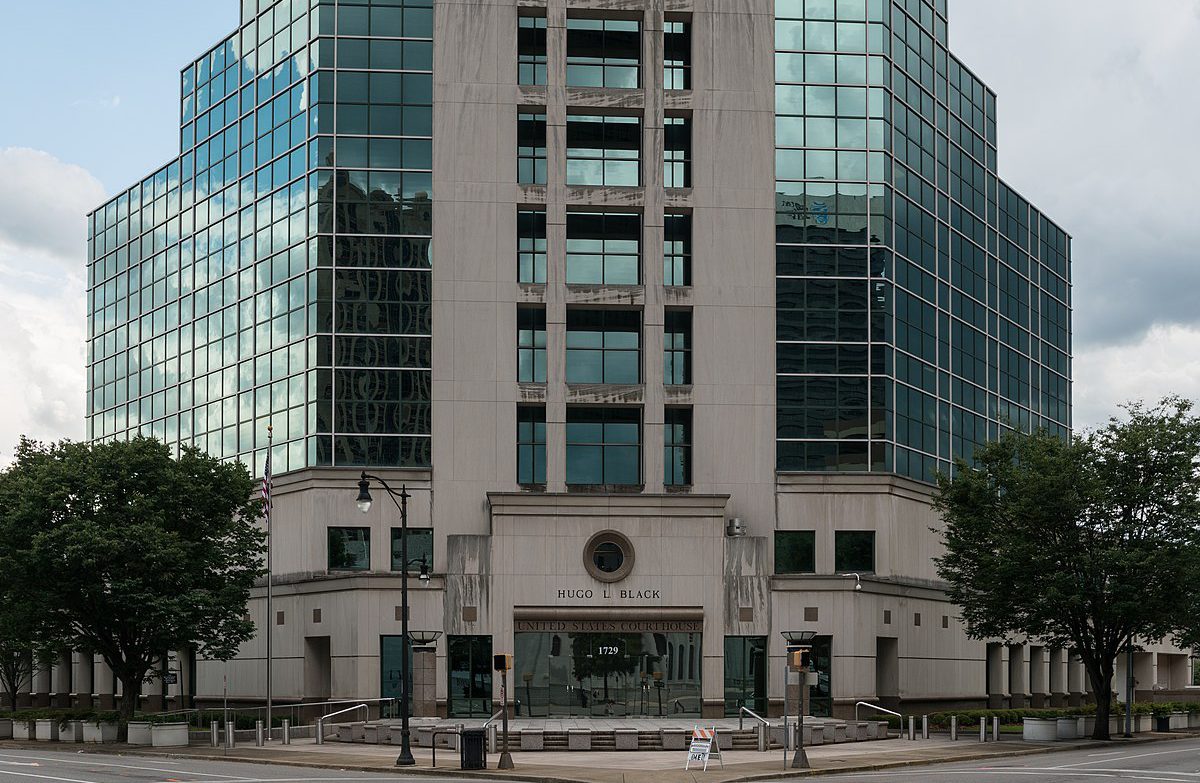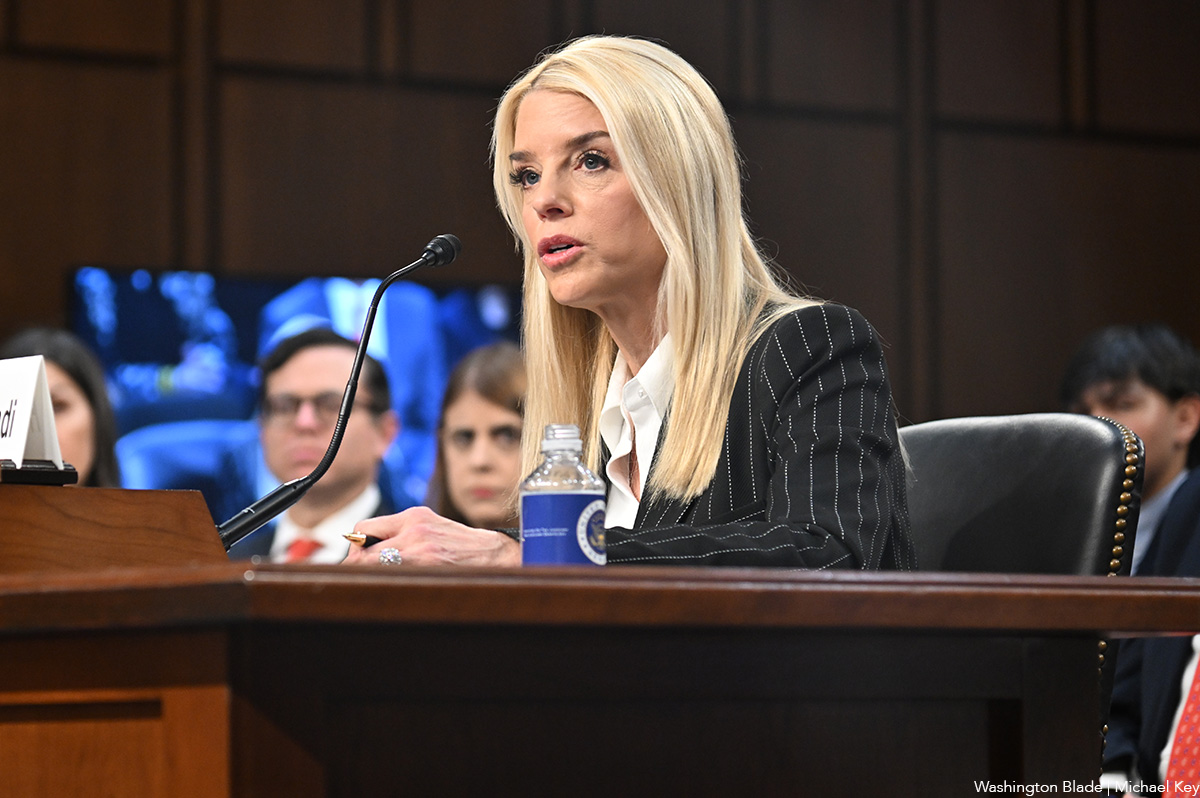U.S. Federal Courts
Federal court blocks part of Ala. trans medical treatment law
Trump-appointed judge issued late Friday ruling

In a 32 page ruling released Friday evening, U.S. District Judge Liles Burke preliminarily enjoined the state from enforcing the law criminalizing medical care for transgender minors in Alabama.
The law made it a felony for doctors and licensed healthcare providers to give gender-affirming puberty blockers and hormones to trans minors.
Burke, who was nominated to the bench by former President Trump to serve on the U.S. District Court for the Northern District of Alabama, wrote that the section of the Alabama Vulnerable Child Compassion and Protection Act that makes treatment of trans minor children a felony; “the court finds that there is a substantial likelihood that Section 4(a)(1)–(3) of the act is unconstitutional and, thus, enjoins defendants from enforcing that portion of the act pending trial.”
Burke however ruled that all other provisions of the act remain in effect, specifically: (1) the provision that bans sex-altering surgeries on minors; (2) the provision prohibiting school officials from keeping certain gender-identity information of children secret from their parents; and (3) the provision that prohibits school officials from encouraging or compelling children to keep certain gender-identity information secret from their parents.
The U.S. Justice Department had challenged the state’s Senate Bill 184 — a bill that would criminalize doctors for providing best-practice, gender-affirming care to trans and non-binary youth.
In the filing by the Justice Department, the complaint alleges that the new law’s felony ban on providing certain medically necessary care to transgender minors violates the Fourteenth Amendment’s Equal Protection Clause. The department is also asking the court to issue an immediate order to prevent the law from going into effect.
SB 184 makes it a felony for any person to “engage in or cause” specified types of medical care for transgender minors. SB 184 thus discriminates against trans youth by denying them access to certain forms of medically necessary care.
It further discriminates against trans youth by barring them from accessing particular procedures while allowing non-transgender minors to access the same or similar procedures. The penalties for violating the law include up to 10 years of imprisonment and a fine of up to $15,000. SB 184 would force parents of trans minors, medical professionals, and others to choose between forgoing medically necessary procedures and treatments, or facing criminal prosecution.
The Justice Department’s complaint alleges that SB 184 violates the Equal Protection Clause by discriminating on the basis of sex and trans status.
LGBTQ legal rights advocates SPLC, GLAD, NCLR and HRC, joined by co-counsel King and Spalding LLP and Lightfoot, Franklin and White LLC, had previously filed a legal challenge in federal district court against Alabama SB 184.
Shannon Minter, the legal director for the National Center for Lesbian Rights, one of the legal rights advocacy groups who had sued Alabama told the Washington Blade late Friday night:
“We are thrilled by this outcome, which will provide enormous relief to transgender children and their families. As the court recognizes, this is well established medical care that has been endorsed by 22 major medical associations. Thanks to this decision, kids in Alabama can now continue to receive this lifesaving care, and their doctors cannot be prosecuted simply for doing their jobs. This is a huge victory for compassion and common sense and a much needed antidote to the tidal wave of hostile legislation targeting these youth.”
In addition to the Justice Department, the doctors challenging SB 184 in Ladinsky v. Ivey are Dr. Morissa J. Ladinsky and Dr. Hussein D. Abdul-Latif, both providers at the Children’s Hospital of Alabama and members of the medical staff at the University of Alabama at Birmingham Hospital and the teaching staff at UAB School of Medicine. Ladinsky and Abdul-Latif have long-term expertise in caring for trans children of Alabama families. Under SB 184, they both face criminal penalties including up to 10 years in prison if they continue to provide that support to their patients.
The Alabama family plaintiffs are proceeding anonymously to protect their children. They include Robert Roe, and his 13-year-old trans daughter Mary, of Jefferson County; and Jane Doe and her 17-year-old-trans son John, of Shelby County. These families have deep ties to Alabama. If SB 184 is allowed to go into effect both families will be forced to choose between leaving the state, breaking the law, or facing devastating consequences to their children’s health.
********************
Maryland
4th Circuit dismisses lawsuit against Montgomery County schools’ pronoun policy
Substitute teacher Kimberly Polk challenged regulation in 2024

A federal appeals court has ruled Montgomery County Public Schools did not violate a substitute teacher’s constitutional rights when it required her to use students’ preferred pronouns in the classroom.
The 4th U.S. Circuit Court of Appeals in a 2-1 decision it released on Jan. 28 ruled against Kimberly Polk.
The policy states that “all students have the right to be referred to by their identified name and/or pronoun.”
“School staff members should address students by the name and pronoun corresponding to the gender identity that is consistently asserted at school,” it reads. “Students are not required to change their permanent student records as described in the next section (e.g., obtain a court-ordered name and/or new birth certificate) as a prerequisite to being addressed by the name and pronoun that corresponds to their identified name. To the extent possible, and consistent with these guidelines, school personnel will make efforts to maintain the confidentiality of the student’s transgender status.”
The Washington Post reported Polk, who became a substitute teacher in Montgomery County in 2021, in November 2022 requested a “religious accommodation, claiming that the policy went against her ‘sincerely held religious beliefs,’ which are ‘based on her understanding of her Christian religion and the Holy Bible.’”
U.S. District Judge Deborah Boardman in January 2025 dismissed Polk’s lawsuit that she filed in federal court in Beltsville. Polk appealed the decision to the 4th Circuit.
U.S. Federal Courts
Federal judge in Md. rules against White House passport policy
Lambda Legal represents transgender, nonbinary people in lawsuit

A federal judge in Maryland on Tuesday ruled in favor of six transgender people who are challenging the Trump-Vance administration’s passport policy.
President Donald Trump once he took office signed an executive order that banned the State Department from issuing passports with “X” gender markers. A memo the Washington Blade obtained directed State Department personnel to “suspend any application where the applicant is seeking to change their sex marker from that defined in the executive order
pending further guidance.”
The Trump-Vance administration only recognizes two genders: male and female.
The lawsuit that Lambda Legal filed in U.S. District Court for the District of Maryland in Baltimore in April alleges the policy “has caused and is causing grave and immediate harm to transgender people like plaintiffs, in violation of their constitutional rights to equal protection.”
Seven trans people — Zander Schlacter, Jill Tran, Lia Hepler-Mackey, David Doe, Robert Roe, Peter Poe, and Kris Koe — filed the lawsuit.
Roe is a U.S. Foreign Service Officer who currently lives in Europe. Lambda Legal, who represents him and the six other plaintiffs, notes Chief Judge George L. Russell III dismissed Roe’s case because the State Department has yet to deny him “an accurate passport.”
“Like every other court that has considered this executive order, the court finds its stated purpose does not serve an important governmental interest that is exceedingly persuasive; further, the discriminatory means employed are not substantially related to the achievement of those objectives,” said Russell in his ruling.
Lambda Legal Counsel Carl Charles described Russell’s decision as “a crucial victory for our clients and transgender people nationwide who have been trapped by this administration’s cruel and discriminatory policy.”
“The court recognized that forcing inaccurate identity documents on transgender Americans causes immediate and irreparable harm,” said Charles in a press release. “Our clients can now travel with dignity and safety while we continue fighting to overturn this discriminatory policy entirely.”
The American Civil Liberties Union earlier this year filed a separate lawsuit against the passport directive on behalf of seven trans and nonbinary people.
A federal judge in Boston in April issued a preliminary junction against it. A three-judge panel on the 1st U.S. Circuit Court of Appeals last week ruled against the Trump-Vance administration’s motion to delay the move.
U.S. Federal Courts
AGs sue White House over push to restrict gender-affirming care in blue states
14 states, DC joined the lawsuit filed Friday

A group of 15 Democratic attorneys general and Pennsylvania Gov. Josh Shapiro (D) have accused the Trump-Vance administration of unlawfully pressuring health providers to withhold access to gender-affirming medicine for minors in places where these treatments remain legal.
In a complaint filed in the U.S. District Court for the District of Massachusetts on Friday, the attorneys general outlined multiple ways in which, they claim, the administration has overstepped its authority to restrict care that is protected under state law, such as by threatening providers with meritless lawsuits and federal investigations.
On the first day of his second term, President Donald Trump directed the Justice Department to pursue enforcement actions to proscribe medically necessary gender related interventions, which were characterized in his executive order as “chemical and surgical mutilation.”
Thereafter, the DOJ has issued subpoenas, demanded private patient data, and suggested that criminal charges might be coming — actions that have no legal basis, and instead constitute efforts to strong-arm Democratic states into alignment with the administration’s position on gender-affirming care for minors, according to the complaint.
As a result of these pressures, the attorneys general argue, providers have reduced or eliminated services while patients have reported cancelled appointments and uncertainty over whether they can continue receiving treatment.
Their lawsuit asks the court to block the administration’s actions and halt the enforcement of the executive order along with another that prohibits the federal government from recognizing transgender people or acknowledging that gender identity does not always correspond with one’s sex at birth.
The 15 attorneys general are from Massachusetts, California, New York, Connecticut, Illinois, Delaware, D.C., Hawaii, Maine, Maryland, Michigan, Nevada, New Jersey, New Mexico, Rhode Island, and Wisconsin.



















